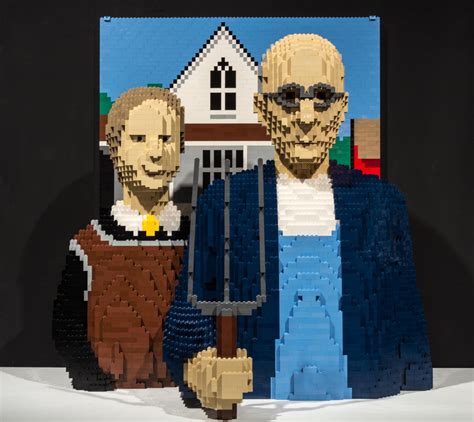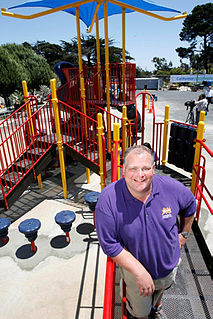A Quote by Jorgen Vig Knudstorp
Children need to move to develop their brain; it's a natural urge. That's why boys will run after a ball and play soccer despite how many video games are available to them, and they can't help themselves from building with Lego bricks as well. They want to be creating something that's uniquely their own.
Related Quotes
I am confined to the Lego palate. I don't paint the bricks. I stick with what Lego has made. And the idea behind that is I do want to hopefully inspire kids to go home and create on their own. And if I do, I want them to be able to buy those very same bricks I use. So I don't alter the bricks; I just use what's provided.
If you really want to help, then help others to be more present. Help others to free themselves from the past. Help others to take responsibility for themselves. Help them to see how they are creating their own suffering. Every now and then, you will encounter innocent ones who are suffering through no fault of their own, particularly animals and children. Do not hesitate! Help them.
Dr. Leonard Shlain, chairman of laparoscopic surgery at California Pacific Medical Center, said they took some four and five year-olds and gave them video games and asked them to figure out how to play them without instructions. Then they watched their brain activity with real-time monitors. At first, when they were figuring out the games, he said, the whole brain lit up. But by the time they knew how to play the games, the brain went dark, except for one little point.
We now know that the way to help a child develop optimally is to help create connections in her brain—her whole brain—that develop skills that lead to better relationships, better mental health, and more meaningful lives. You could call it brain sculpting, or brain nourishing, or brain building. Whatever phrase you prefer, the point is crucial, and thrilling: as a result of the words we use and the actions we take, children’s brains will actually change, and be built, as they undergo new experiences.
LEGO is universal. So many people enjoy it, from all different walks of life, all different ages, all different cultures. When I was in Africa, I had LEGO bricks with me and I met some people who had never heard of LEGO, they had never seen it before and yet as soon as I gave them a few bricks, they immediately got it.
I believe that if we don't make moves to get people who don't play games to understand them, then the position of video games in society will never improve. Society's image of games will remain largely negative, including that stuff about playing games all the time badly damaging you or rotting your brain or whatever.
When people go to museums and see a sculpture made out of marble, they appreciate it but it's very doubtful that they will go home and have a slab of marble they can chip away at, but people do have LEGO. I don't have any LEGO specially made for me, all of the shapes, sizes and colours I use are available in stores so that if someone is inspired to create on their own, they can go and buy the very same bricks.
But I hope to maintain my credibility after I stop playing. Because, yes of course, now I play and I score goals and children all over are mad about me. Not just poor children - all children. We can make them really happy by the way we play, though I have to say that it's the poor ones that I think of most, the ones who can't come and watch the games at the stadium. We mean so much to them. That's why I'm so committed to this work. Later, after you've stopped playing, it's harder to have the same impact. But I will give it a go. I want to continue doing this kind of work for ever.
































